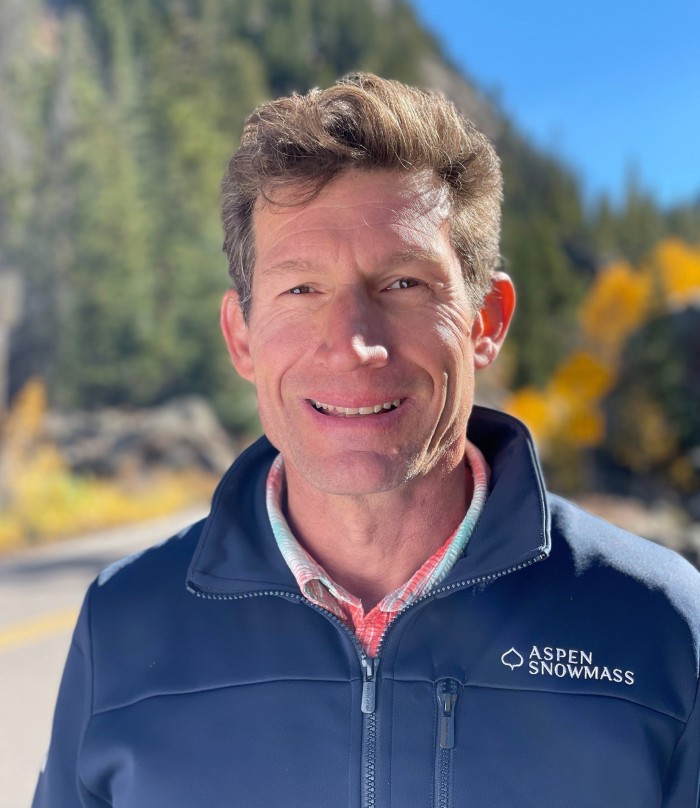How to make business school sustainability research matter

Simply sign up to the Business education myFT Digest -- delivered directly to your inbox.
Auden Schendler is senior vice-president of sustainability at Aspen Skiing Company and author of the book ‘Getting Green Done’ (Public Affairs)
Colleagues call me a unicorn, because I am a rarity: by day, a sustainable business executive; by night, an occasional author of papers and speaker at business schools. Unfortunately, that connection between practice and academia is highly unusual.
Too often, what gets published is obscure and irrelevant. Even if it is useful, it is inaccessible and slow to appear. If you do get your hands on it, it’s in impenetrable prose. All of these issues would be academic, except society is faced with the urgent and pressing need to solve climate change.
My own experience illustrates the problem. In the early 2000s, my job was cutting carbon emissions at Aspen Skiing Company in the US. To do that, I convinced management to buy Renewable Energy Certificates (RECs), enabling us to claim the carbon reduction resulting from power generated elsewhere, such as at a wind farm.
But something wasn’t right. We had paid a tiny sum relative to the cost of our energy bill. How could something with almost no value on the open market actually reduce carbon emissions? I tried to find evidence on RECs without success but, based on a gut feeling that they were a scam, I cancelled our contract.
FT Business School Insights: Sustainability

Research by leading professors, features and academic and business opinion. Read the report here.
The research I needed took years to appear. When it did — notably by Michael Gillenwater and colleagues from the Greenhouse Gas Management Institute — it showed up only in obscure, paywalled peer-reviewed journals. Not insights that were available at the newsstand or corporate office.
But this work was essential. Fortune 500 companies, to this day, make absurd claims about their carbon footprints based on financial instruments Gillenwater showed to be fraudulent. Lack of information, or greenwashing, is destroying the climate.
That research represents another kind of unicorn in academia: useful information. Most journals are of little use to practitioners. That’s because academic publication is only tangentially about fixing societal problems: it is mostly about keeping your job. That often means pursuing a tidy, obscure subject tied to a researcher’s speciality but irrelevant in the world of real beings.

Business schools tend to focus their research — like their teaching — in a way that treats companies as entities distinct from society at large, functioning as economic units of their own. Progress or success is measured at the company, not the societal, level. This old thinking leads to perverse, contradictory and unethical actions by business.
There is one final insult: even if published papers are worthwhile and available, they are often boring and impenetrable. Academia still suffers from the “Sagan effect” — the idea that, if you are entertaining or accessible to popular audiences, you must not be serious.
All is not lost, though. First, we need to address accessibility. Social change happens in the public sphere. PR and media support for good research would push useful ideas out into the popular press faster and with more traction than peer reviewed journals. Many academics need help popularising and clarifying their work.
Institutions have the expertise and staff, but need to make this a priority. It is in universities’ interests to better share this material, not least because their mission statements always claim some version of improving the world.
Second, we must bridge the gap. Professor Tom Lyon at the University of Michigan is one academic who does so. He and colleagues wrote CSR needs CPR: Corporate Sustainability and Politics, which argued that corporations should not claim to be responsible and do the opposite politically.
Lyon’s article was picked up elsewhere, partly because of his involvement in two innovative organisations. The first is the Network for Business Sustainability (NBS) at the Ivey Business School in Ontario, which culls the best, most relevant research and highlights it. The second is the University of Michigan’s Erb Institute’s Corporate Political Responsibility Taskforce (of which I’m a member), which connects academics with business people and supports corporate commitments on political responsibility.
Similarly, the University of Virginia’s Environmental Thought and Practice major introduces undergraduates to people working in sustainability with its Jefferson Trust Practitioners in Real Life programme. That helps academics get to what NBS knowledge manager Maya Fischoff calls “implications for practice”. In other words, doing more than just admiring problems.
Third: we must convene meaningful events. Traditional sustainability conferences leave me feeling empty and corrupt. Attendees feel important being in the room with famous people, with no results necessary. But bringing academics and businesspeople together to guide important research could create change.
This could be done by university business and environment centres and expanded to non-academic groups, such as the Aspen Institute. Those organisations could also help to highlight — and remove paywalls from — specific research that deserves more attention.
We are wasting time. Meaningful academic research that spurs more rapid progress on sustainability ought not be a mythical beast, the unicorn, but a global reality.

Comments